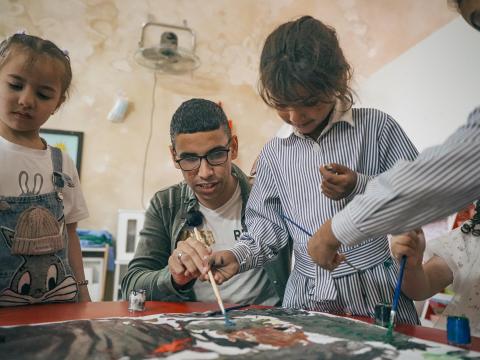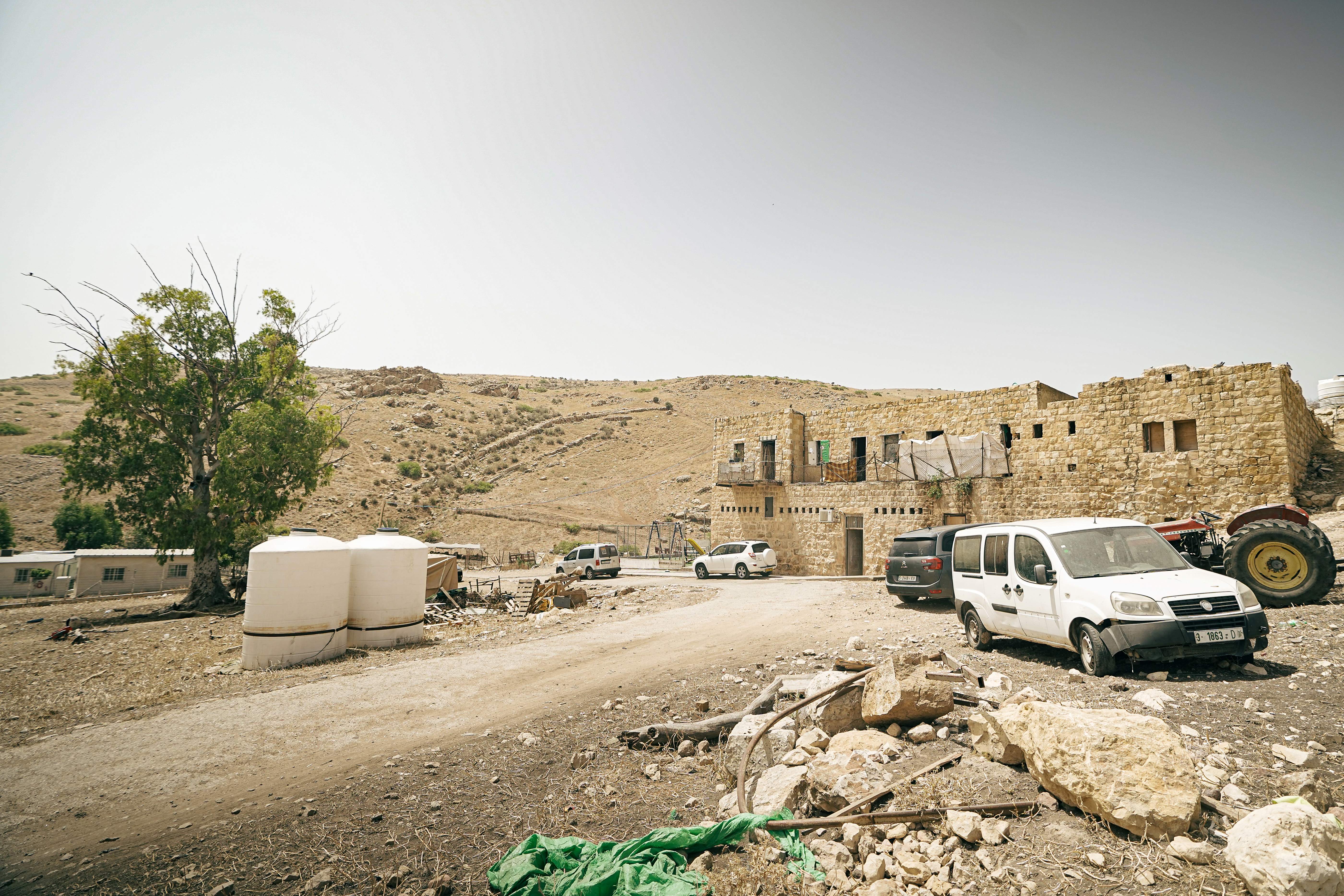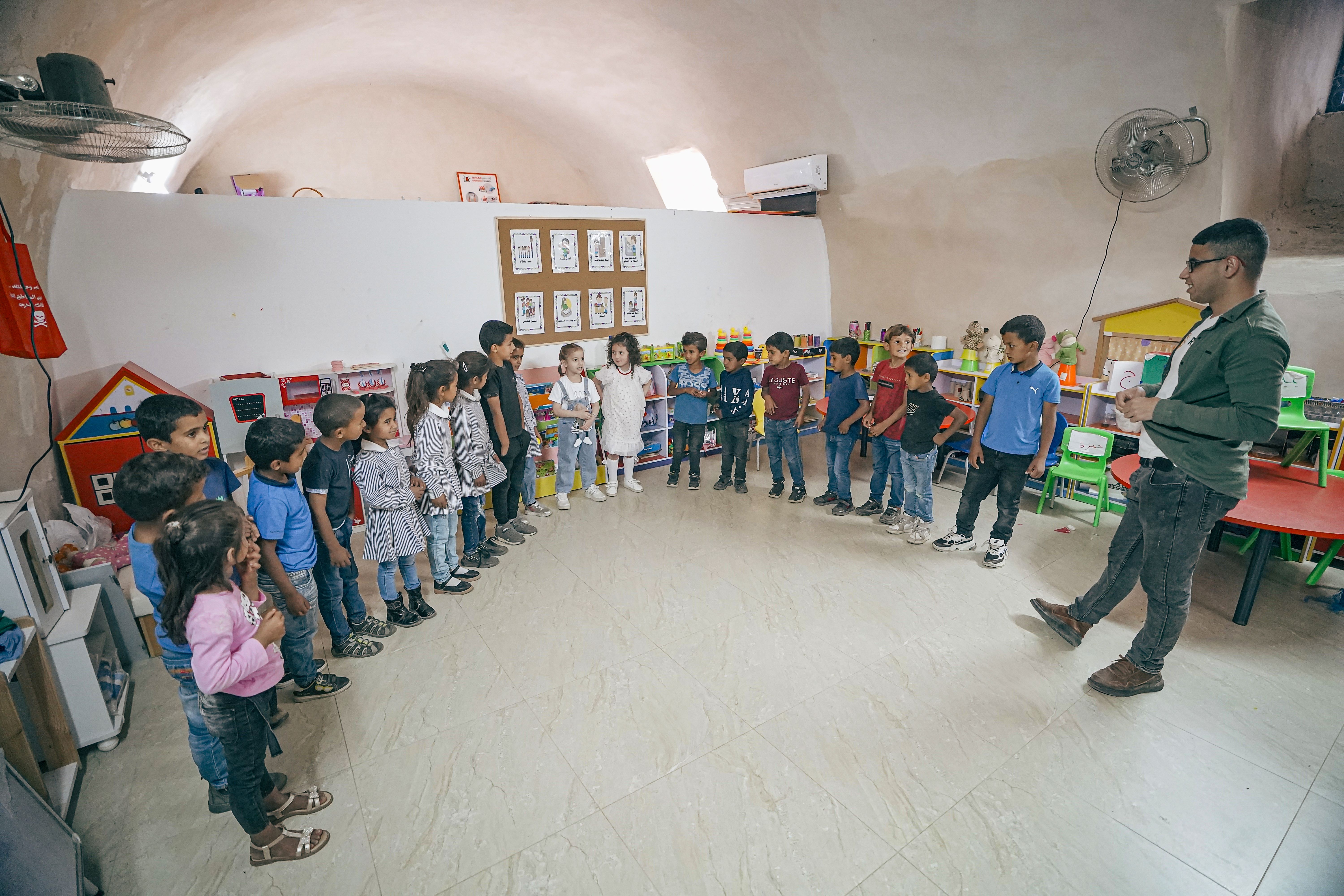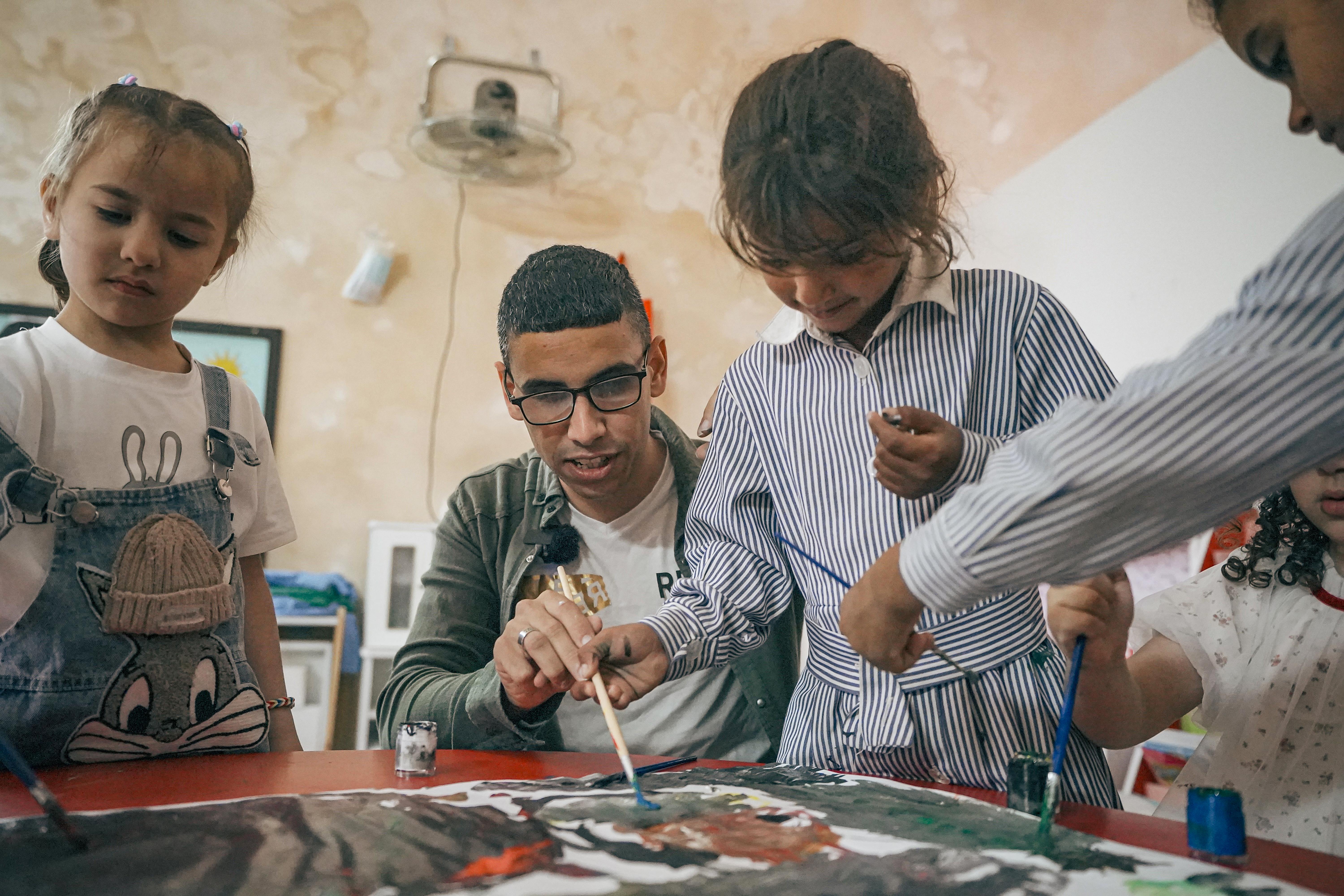Cultivating hope and resilience – the story of Nizar

On a warm May morning, in an old school building in a small village of the Jordan Valley, east of the West Bank, Nizar stands in the middle of his students, ready to start the day with games and activities. The 22-year-old school counsellor knows his students need this moment each morning to help them leave behind the concerns and stress that affect many of them outside the school’s walls, so they can be fully engaged with their lessons.
Nizar’s school in the Tubas governorate is located in a remote part of Area C. A military base stands directly in front of the school, creating a constant atmosphere of tension. On days where military activity or violence is heightened, many parents are too afraid to send their children to school. Numerous violent incidents and attacks have taken place in or around the school in the past. The building is badly in need of rehabilitation work, but, like in many places in Area C*, requests for construction permits are systematically rejected and because of its location, the school has received a demolition order instead.

While particularly prevalent in this part of Area C, children throughout the West Bank are exposed to traumatic events often, leading them to experience persistent stress and anxiety. The students are not the only ones needing this morning routine to alleviate their stress though. To reach the school, Nizar must pass through a difficult checkpoint every day, often waiting for hours amidst high tensions. Living in these unrelenting conditions can have a profound impact on the psychosocial well-being of students and teachers alike, affecting their physical and mental health and each of their abilities to learn and teach effectively.
However, this young teacher in particular is very familiar with adversity, perseverance, and determination. Despite being almost 100% blind, Nizar successfully graduated recently with his degree in social work, bringing his devotion for supporting young people, particularly those living with disabilities, to his role as school counsellor in this particularly challenging and complex environment. Yet, when Nizar first started working at the school, he found the children withdrawn, shy, and unresponsive.

Passionate about this work and wanting to help his students manage the challenges they face, Nizar eagerly took part in a recent art-based psychosocial support (PSS) training. Part of World Vision’s project "Safe Access to Inclusive and Dignified Education in Areas B & C – West Bank", funded by the European Union, World Vision instructors were able to adapt the activities and materials to match Nizar’s abilities so he could fully participate alongside other teachers.
The goal of this particular training was to help teachers identify when students’ stress levels are heightened and respond with age and gender-appropriate stress-relief activities. Nizar was excited to learn interesting and creative activities that he could do with his students to help them express their emotions through drawing and imagination while simultaneously releasing their stress. Even in these difficult circumstances, “[I] want to foster a positive environment and make children love coming to school by using new methods, not just lecturing them, like in other classes,” he shared.
“I have started using the new techniques [I learned] and am engaging the students with PSS activities to help them express their emotions and release their stress,” Nizar told us. He discovered that by initiating a morning ritual of icebreaker activities, that he participates in alongside his students, he was able to break down barriers. Nizar's enthusiasm and innovative techniques have won the hearts of his students.
"I started by making the children laugh by changing my tone of voice using the imitation game, which I learned during the training. Then I slowly encouraged them to interact with me and open up," Nizar recalls. "Although I am visually impaired, the students loved [the activities I did with them] and soon loved class with me.”

His students agree that the new games and art activities Nizar has brought back to his classroom are a fun aside from their daily work. Bisan, a first-grader, told us, “I now like to go to school and meet my friends. I enjoyed the recent drawing activities that Mr Nizar gave us. I drew a duck, the sun, and the moon!”
Back in his classroom, Nizar smiles as the children break up into loud groups as they wait for art class to begin. The young teacher has always been convinced that through perseverance, he could accomplish anything. Now, as he teaches his young students in this tenuous context, he feels better prepared and like he is spreading hope for the future and resilience, one class at a time.
* Over 60 percent of the West Bank is considered Area C, where Israel retains extensive control, including over security, planning and zoning, as per the Oslo Agreements. An estimated 150,000 Palestinians live in Area C, including 27,500 Bedouin and other herders.